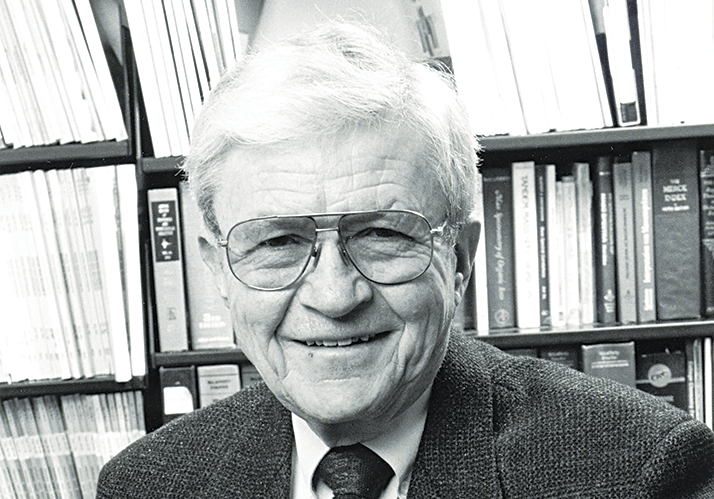
On his experience of combat in World War II:
“The best way of answering your question is that, at the age of 21, it was a very maturing experience. I was in an infantry rifle company on the front line. And while I’ve won several medals, it had more to do with the fact that my particular company experienced very difficult and unusual battles and included great people that deserved recognition. I just happened to be there. Yes, I got a Purple Heart – that means I was wounded. But there are 193 men in a rifle company and we got 194 Purple Hearts. What it really means is that we saw a lot of action. The highest US award is the Medal of Honor – I think there were 384 given in World War II all told – and we had a guy in our company, Johnny Crews, who received one. I was just along for a nice picnic compared with what he did. We had 35 killed in action, so I was also very lucky. Those are the people that really deserve to be honored, of course.
That whole chapter of my life gave me confidence, commitment, and even a future excuse. I have a short fuse when it comes to people who don’t pull their weight, quickly pointing out their “deficiencies”, but I’ve been able to get away with it because people know I’ve seen tremendous achievements in times of adversity. The American Society for Mass Spectrometry recently helped me celebrate my 90th birthday, and it was nice to realize that those who spoke had forgiven me!
I wouldn’t take a million dollars for my infantry experience, but I sure wouldn’t do it again for a million dollars either.”
How analytical chemistry changed over the years:
“I was at the Dow from 1950 to 1964, and I could see from the outside what a terrible time analytical chemistry was having in academia at that time. Most of the best chemistry departments turned their noses up at it. The reason I went to Purdue University from Dow is because my good friend ‘Buck’ Rogers went there after being pushed out of the Massachusetts Institute of Technology (MIT). He was a good guy and did a great deal for analytical chemistry. I had a strong analytical chemistry heritage to back me up – but not many “good” universities wanted research on volumetric or gravimetric analysis. Still, I was always proud to call myself an analytical chemist.”




